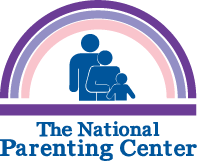Babies cry when they’re unhappy or uncomfortable. Crying is a distress signal. Babies don’t cry to exercise their lungs. A few of them cry because they’re in pain from an ear infection or a bad diaper rash, and most babies obviously cry when their hungry, but they stop as soon as you offer them a […]
Educational
Babies who are raised in households with smokers are hospitalized more often during the first year than babies who are brought up in smoke free homes. They’re put in the hospital because of lung infections. This fact has been proven in a number of studies from the United States, Israel and England, all showing the
We have made great strides in improving the oral health of or children, but much more needs to be done, especially in the area of prevention. Did you know that 25% of all school age children have five or more decayed, filled or missing teeth? Fluoride is most important in preventing dental decay. There’s no
I’ve heard a lot of “Old Wives’ Tales” about kids, and here are some: 1. “A child who is not toilet trained on time is emotionally insecure, or just nasty and stubborn.” Neither is true. There is no relationship between the time a child toilet trains and his emotional security or personality. 2. “Fever convulsions,
During the years that I have been practicing pediatrics, I’ve heard many “Old Wives’ Tales” about kids. I’d like to discuss some of these with you. 1. “The earlier a baby talks, the smarter she is.” Or, put another way, a baby who is a late talker is not too bright. This is not true.
Many parents are curious to find out if their baby is right or left handed. There is no way to know for sure for the first year or two, since most babies are ambidextrous and use both hands equally. Although some do favor using one hand over the other at an early age, by four
The Nutrition Committee of the American Academy of Pediatrics recommends that solid foods be started within four and six months of age, and I agree. Introducing solid foods too soon could cause problems such as vomiting, diarrhea, and even food allergies later on. There are a number of signs you can use to help you
Most pediatricians recommend that single grain cereals be started first, usually rice cereal. Baby cereals are excellent first solid foods because they are all iron fortified by law in the United States and are easily digested. Each new food should be introduced one at a time, starting with just one teaspoon the first day and
Infants should be breast fed or formula fed for the first year of life. They should not be started on regular whole milk until after their first birthday. My reasons for saying this are as follows: 1. Regular milk has much more salt and protein in it than either breast milk or infant formula, and
Breast milk is the ideal food for a baby from both the nutritional and psychological points of view. It also gives some protective immunities to the baby, and especially against some gastrointestinal infections. Therefore, I would strongly encourage all mothers to try to breast feeding. Those new mothers who choose not to, or can’t breast












